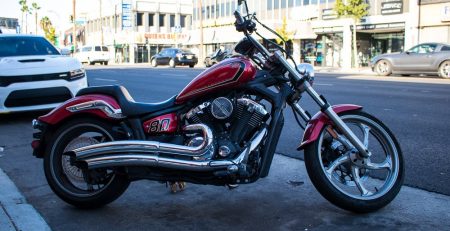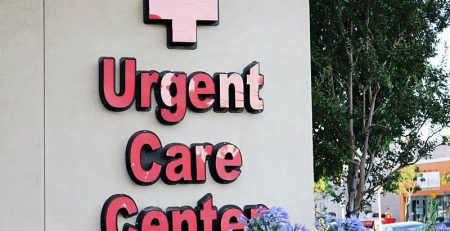What to Do if You’ve Been Injured in a Boating Accident in Tampa
Boating is one of Tampa Bay’s favorite ways to enjoy the water, as well as Florida’s sunny weather. This leads to hundreds of Tampa residents and tourists riding boats in the Bay. Unfortunately, accidents are of common occurrence. And an accident can change everything in seconds. Collisions, dangerous wakes, speeding, or impaired operators can lead to life-changing injuries. The actions you take right after the crash can affect both your health and your right to fair compensation.
Here’s a clear, step-by-step guide for anyone hurt in a boating accident in Tampa.
Get to Safety and Seek Immediate Medical Care
Your first priority is safety. If the boat is damaged or sinking, help everyone put on life jackets and move away from fuel or fire hazards. Call for help using a marine radio or 911 if you have cell service.
The Florida Fish and Wildlife Conservation Commission (FWC) patrols Tampa Bay waters, and the U.S. Coast Guard (USCG) responds to offshore emergencies. Stay calm until help arrives.
Seek medical care right away, even if you feel fine. Concussions, internal bleeding, and fractures may not show symptoms immediately. A prompt medical record protects both your health and any future injury claim.
Stay calm until rescue arrives. Seek medical care even if you feel okay. Concussions, internal bleeding, and fractures can take time to show symptoms. A prompt medical record protects both your health and any future claim.
Report the Accident to the Florida Authorities
Florida law requires reporting any boating accident that causes injury, death, disappearance, or property damage over $2,000. Most Tampa boaters file with the FWC, while the USCG handles incidents in federal waters.
If law enforcement responds, provide accurate details but avoid guessing or admitting fault. If you must file later, you can contact the FWC online or by phone. An official report becomes vital evidence when dealing with insurers or pursuing legal action.
An official report is an important record for insurance and legal claims.
Gather Evidence and Document the Scene
If it is safe, begin collecting details while waiting for help. Take photos of all boats involved, their registration numbers, visible damage, and any injuries. Capture wide shots of the area to show wakes, buoys, or navigation hazards. Write down the water and weather conditions at the time of the crash.
Exchange contact and insurance information with all operators involved and collect names and phone numbers of passengers or witnesses. Keep notes about what FWC or USCG officers say or provide.
If another vessel leaves the scene, write down its color, size, and direction. Save damaged gear or life jackets because they may help show the severity of the impact later.
Notify Your Insurance and Avoid Admitting Fault
Once you are safe and have received medical attention, contact your boat insurance provider. Share the basic facts, including where and when the crash happened, who was involved, and what damage occurred.
Do not speculate about fault or accept blame. Florida follows comparative negligence rules. If you are found partly at fault, your compensation can be reduced. Avoid giving recorded statements or signing paperwork until you have spoken with a lawyer.
If the other boater’s insurance company calls you, you do not have to speak with them. An attorney can handle those conversations and protect your claim.
Speak With a Tampa Boating Accident Lawyer Early
Boating accident claims can become complicated quickly. More than one person or even a rental company or manufacturer might share responsibility. Evidence such as GPS data, rental agreements, or maintenance records can disappear fast. State and USCG rules may also affect your case.
A Tampa boating accident lawyer can investigate the crash, preserve crucial records, work with experts to explain how it caused your injuries, and negotiate with multiple insurance companies. Acting early makes it easier to protect your rights and pursue full compensation.
Common Causes of Boating Accidents in Tampa Bay
Many boating accidents in Tampa happen because safety rules are ignored:
- Excessive speed makes it difficult to avoid hazards in crowded channels
- Alcohol use is a leading factor in severe boating crashes
- Improper lookout can cause operators to miss other boats, swimmers, or debris
- Dangerous wakes can swamp or flip smaller vessels
- Mechanical failure from poor maintenance or steering problems can lead to loss of control
- Inexperience means many boaters do not understand USCG navigation rules or local markers
Identifying what caused your crash is essential for proving fault and strengthening your case.
Post-Incident Checklist
Stay organized after the accident to protect your claim:
- Medical records, bills, and receipts
- Photos of injuries and boat damage as they heal or worsen
- Boat repair invoices or property damage estimates
- Contact details for witnesses and responding officers
- Copies of any FWC or USCG reports
- Insurance policy numbers and claim information
- Records of missed work and lost wages
- Notes on pain levels, recovery progress, and daily limitations
Bringing this information to your lawyer makes it easier to prove your losses and seek full compensation.
Call Fulgencio Law After a Boating Crash in Tampa
If you’ve been injured in a boating accident in Tampa, you don’t have to navigate insurance and maritime laws alone. At Fulgencio Law, we act quickly to preserve evidence, review FWC and USCG reports, and fight unfair blame.
Our team has helped boating accident victims recover compensation for medical treatment, lost income, boat repairs, and long-term care needs. We’ll work to secure the resources you need to move forward.
Call (813) 463-0123 today for a free consultation with a skilled Tampa personal injury lawyer. Let Fulgencio Law protect your rights and handle the legal fight while you focus on healing.










